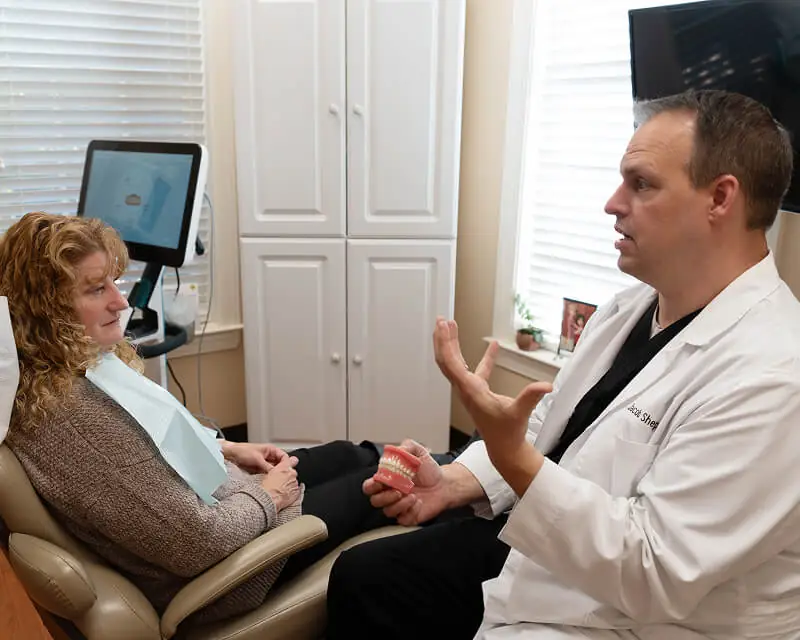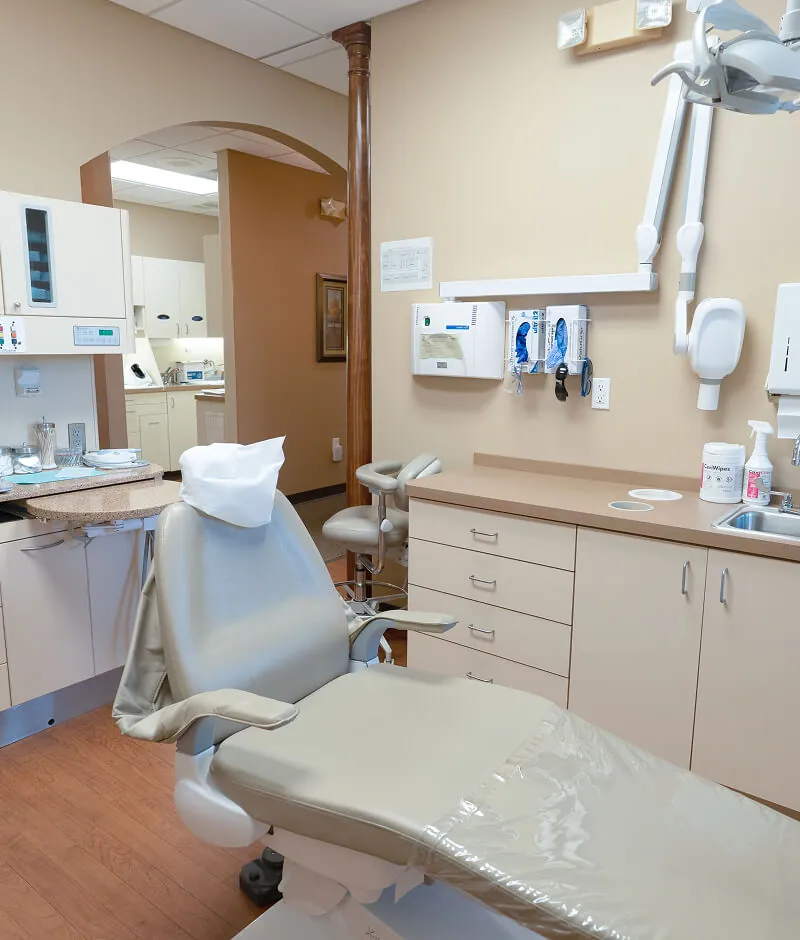At Sycamore Family Dentistry in Midlothian, VA, we understand that healthy gums are just as important as healthy teeth. Periodontal (gum) disease is a common but serious condition that can affect patients of all ages, leading to discomfort, bad breath, and even tooth loss if left untreated. Our experienced team is dedicated to diagnosing, treating, and preventing gum disease with advanced techniques and personalized care, helping you maintain a strong foundation for a healthy, beautiful smile.
What Is Periodontal Therapy?
 Gum disease, also known as periodontal disease, is a progressive infection that affects the gums and jawbone supporting your teeth. It typically begins with gingivitis and can advance to periodontitis or more severe stages if left untreated.
Gum disease, also known as periodontal disease, is a progressive infection that affects the gums and jawbone supporting your teeth. It typically begins with gingivitis and can advance to periodontitis or more severe stages if left untreated.
Caused by harmful bacteria trapped in plaque and tartar, gum disease can lead to receding gums, tooth mobility, and even tooth loss. At Sycamore Family Dentistry, our skilled dentists provide comprehensive periodontal treatments to address gum disease at every stage and help restore your oral health.
What are the Benefits of Periodontal Therapy?
Treating gum disease early can have lasting benefits for both your oral health and overall well-being. Periodontal therapy can:
- Improve gum health and overall oral hygiene
- Prevent tooth and bone loss
- Reduce bacteria that cause periodontal issues
- Freshen breath and alleviate discomfort
- Enhance the appearance of your smile
- Provide a cost-effective alternative to more extensive dental procedures
Do I Need Periodontal Treatment?
Anyone noticing symptoms such as bleeding gums, puffiness, sensitivity, persistent bad breath, or a receding gumline should consider a periodontal evaluation. Even minor signs of gum disease can progress if untreated. Patients with loose teeth or discharge from the gums may require more advanced treatment. Early intervention increases the chances of halting or reversing damage, preserving your teeth and gums for years to come.
Periodontal Exams and Cleanings

- Mild gum disease (gingivitis) can often be resolved with professional cleanings and improved at-home oral hygiene.
- Moderate cases (periodontitis) may require scaling and root planing (SRP) combined with localized antibiotics.
- Advanced stages of periodontal disease may involve surgical interventions such as flap surgery or bone grafting to restore gum and bone health.
After your treatment, our team will provide detailed guidance on brushing, flossing, and lifestyle habits to support recovery. We typically recommend scheduling follow-up periodontal maintenance visits every 3-4 months to monitor healing, prevent recurrence, and replace standard twice-yearly cleanings. These ongoing appointments with our Midlothian dental team help ensure your gums remain healthy and your smile stays strong.
Advanced Periodontal Care for Healthier Smiles
Boost your oral health and total-body wellness by prioritizing your gums! Our team is here to help with gentle, targeted treatment and advanced periodontal exams. Contact us today to schedule your visit and take the first step toward healthier gums!
